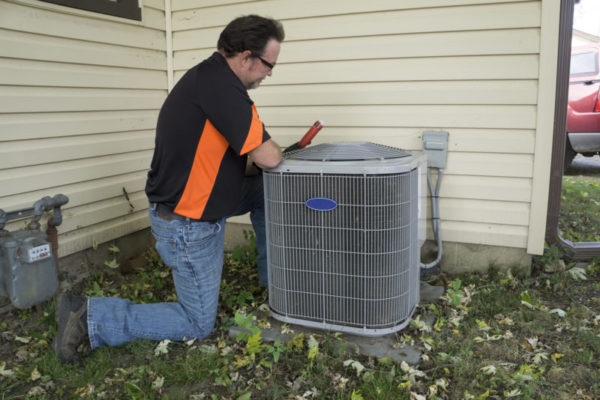Temperature and humidity can rise to extreme levels in League City, Texas, during the summer months. This means that your air-conditioning system has to work extra hard to keep you and your family comfortable. If your AC unit has dirty or worn components or some mechanical problems, it may not be able to cool your home effectively, resulting in discomfort, frustration, and higher energy bills. However, you can take the following measures to ensure that your AC will operate optimally this summer.
Clean or Replace Filters
Cleaning or replacing filters is a relatively easy task that you can do yourself, but you can also get professional help if you want to save time and effort. You should check the filter in your AC unit at least once a month. It can be found in the blower unit, where the return duct and the unit meet.
If the filter is badly clogged, it will cause airflow through the blower unit to slow down, leading to ice buildup on the cooling coil. As a result of restricted airflow, your unit will have to work harder and longer, consuming more energy and raising your energy bills. Ice buildup can also cause your AC to shut down.
There are many different types and grades of AC filters available. If you are using a filter that reduces allergens, you can expect it to accumulate dust and debris at a faster rate. As such, you have to check it more frequently.
Check the Ductwork
To ensure that the ductwork of your air-conditioning system is clean and in good condition, you need to look at two things. First, you have to check the registers in your home. There should be no furniture or rugs obstructing the airflow. Open the registers up and see if there is anything in the ductwork that may cause problems. If you have a toddler or young child, you never know what you will find in there. If you find biological growth in the ducts, it’s best that you hire a professional AC technician to clean them.
The other thing you need to inspect is the ductwork that runs through your basement or attic. Make sure all the connections and seams are properly sealed and there are no holes or corrosion. If you find a hole at a joint, you should seal it with silver aluminum-foil tape instead of traditional duct tape.
If there is an attic system in your home, you have to take a close look at the insulation on the supply duct that sends cool air back to the house. Without proper insulation, the cold metal will begin to sweat when the temperature rises, causing condensation to drip onto the ceilings.
Clear the Debris
The condenser outside your home needs to have unobstructed airflow around it in order to work properly. There should be a minimum of two feet of clear space around it, without the presence of wood piles, shrubs, low hanging branches, or objects. The fan in the condenser sucks in air, debris, pollen, and dirt when your AC unit is operating, so you should give it a thorough cleaning from time to time. This can be easily done with a garden hose, but be sure to turn off the power to the unit before doing anything inside it.
Check the Coolant Lines
The next thing you need to do is inspect the refrigerant lines, which are tubes or pipes that run from the condenser to the evaporator inside your home. These lines should be fully insulated to prevent energy loss. You can either cover them with foam insulation tape or foam insulation sleeves.
Test the Thermostat
Make sure your air conditioner will turn on when you set the thermostat to a lower temperature. Then, lower the temperature to 60 degrees and see if the air coming out of the registers is cool. If it’s not, you should contact an AC professional.
While some AC maintenance tasks can be easily performed, others may require professional knowledge, skills, and equipment. If you want to properly prepare your AC unit for summer, you can call us at Maxx A/C & Heating at (281) 409-3890 to schedule an appointment.
Image provided by Bigstock

